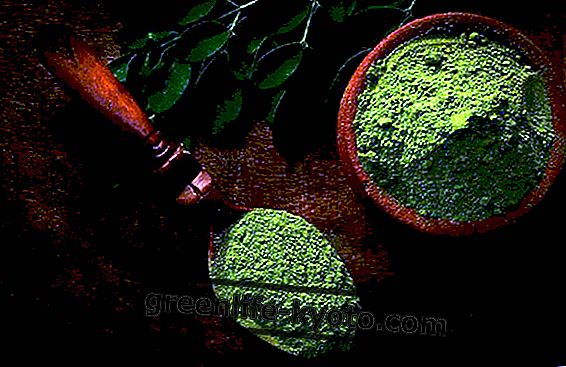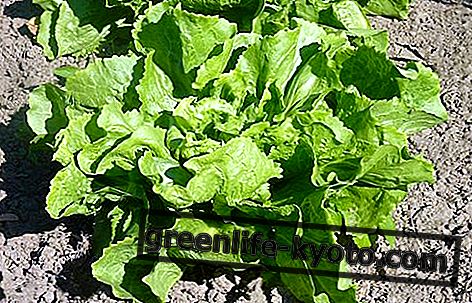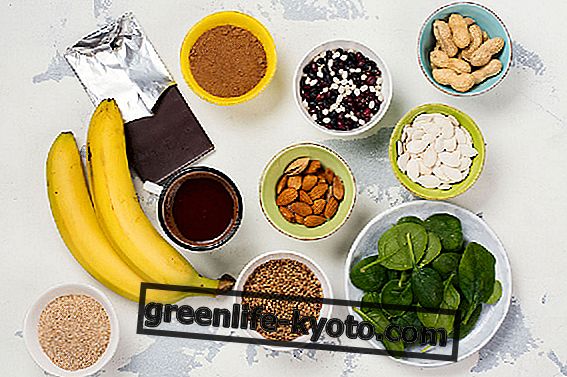Curated by Maria Rita Insolera, Naturopath
Vitamin B6, also called pyridoxine, belongs to the vast group of B vitamins and falls into the category of water-soluble vitamins. It is necessary for the synthesis of neurotransmitters of serotonin and norepinephrine and for the formation of myelin, a structure capable of acting as a protection for the central nervous system .
Brewer's yeast among vitamin B6 supplements

Properties of vitamin B6 supplements
Vitamin B6 performs various functions, such as:
- Promotes energy production and resistance to stress.
- Promotes the formation of red blood cells.
- It regulates the excretion of water, so it counteracts water retention.
- Maintains the balance of minerals in the body.
- Intervenes in the production of neurotransmitters such as serotonin, dopamine, noradrenaline.
- It is part of the synthesis of nucleic acids .
- In the body the coenzyme pyridoxalphosphate is converted into the biologically active form, which has a key role in the metabolism of amino acids.
- It acts in the protein metabolism of the various organic tissues and particularly in the nervous ones.
- With various enzymes and hormones, it plays the fundamental function in the body of metabolizing carbohydrates, fats and proteins .
- Promotes the production of red blood cells, antibodies and also the conversion of tryptophan into niacin (or vitamin B3 / PP).
- Contributes to the regular functioning of the digestive system, the muscular system and the nervous system.
- Promotes blood circulation, decreasing platelet aggregation.
- Relieves premenstrual syndrome.
- Reduces arterial pressure.
- Facilitates weight loss.
- Delays cellular aging .
- Improve your eyesight.
- Stimulates fertility.
- It acts as a tranquilizer and relieves nervous and muscular disorders.
- Relieves symptoms due to carpal tunnel syndrome.
- It prevents the formation of kidney stones, increasing the urinary excretion of oxalates, which combine with calcium to form calculi in the kidneys.
- Regulates blood sugar preventing the complications of diabetes.
Vitamin B6 food supplements
Foods rich in vitamin B6 are:
- Vegetables - All vegetables contain vitamin b6 but contain more of them: peppers, potatoes, broccoli, spinach, peas, asparagus, carrots and turnip greens.
- Fish - The richest in vitamin b6 is the yellow pina tuna, but also the cod, the red snapper, the salmon and the trout are rich.
- Meat - Almost all types of meat contain vitamin B6 (chicken, pork, turkey) but beef is the richest source.
- Wheat germ - One of the foods with the highest vitamin B6 content.
- Oilseeds - Among the most important sources of vitamin B6 are cashews, peanuts, hazelnuts and sunflower seeds.
- Legumes - Peas, lentils, chickpeas, soy and many others.
- Chestnuts - Rich, not only of vitamin B6 but also of fiber.
- Buckwheat flour - Perfect food source of Vitamin B6 and fiber, also useful for coeliacs.
- Rice - Whole wheat is preferred over white.
- Whole grain bread
- Cereals
- Potatoes
Like other B vitamins, pyridoxine is stable to heat and air, so it is not destroyed by cooking or by exposing food to air.
However, exposure to light can degrade this vitamin. For this reason, foods containing vitamin B6 must be stored, until consumed, in closed, non-transparent containers.
You can learn more about foods rich in vitamin B6

Vitamin B6 herbal supplements
The best vitamin B6 herbal supplements are:
- Brewer's Yeast: is a supplementary food of fundamental importance. The large intake of B-complex vitamins and other nutrients makes brewer's yeast an indispensable multivitamin source. It can be found in flakes or in tablets.
- Wheat germ is an excellent source of B-group vitamins. Separated from the flour with a sieve after grinding the caryopsis, it comes in the form of small whitish flakes, which can be eaten either naturally or together with other foods (yogurt, breakfast cereals, vegetables).
Vitamin B6 supplements on the market
Vitamin B6 is available in supplements usually in the form of pyridoxine . Pyridoxine is frequently used in combination with other B vitamins in formulations of the B vitamin complex.
Before taking supplements it is always good to check the doses with your doctor . Vitamin B6 is well tolerated in both adults and children and there are no particular contraindications or warnings.
Daily requirement
The daily requirement of vitamin B6 is closely related to the amount of protein consumed. Based on age, the daily dosage (recommended in milligrams mg) is as follows:
- Newborns up to six months: 0.1 mg
- Baby 7-12 months: 0.3 mg
- Children 1 - 3 years: 0.5 mg
- Children 4 - 8 years: 0.6 mg
- Children 9 - 13 years: 1.0 mg
- Adolescents 14 - 18 years (boys): 1.3 mg
- Adolescents 14 - 18 years (girls): 1.2 mg
- Adults 19 - 50 years: 1.3 mg
- Adults aged 51 and over (men): 1.7 mg
- Adults aged 51 and over (women): 1.5 mg
- Adolescents and pregnant women: 1.9 mg
- Adolescents and lactating women: 2.0 mg.
Vitamin B6 deficiencies are rare because with a balanced diet it is possible to cover the daily requirement. However deficiency symptoms can be:
- Pellagra - skin problems, in particular dry skin, rashes and scaly skin around the scalp, eyebrows and behind the ears (seborrheic dermatitis), tongue inflammation (glossitis) and angular cheilitis
- Premenstrual syndrome, morning sickness.
- Water retention.
- Nervous system disorders, such as peripheral neuropathy.
- Muscle spasms.
- Insomnia.
- Anemia.
- Seizures - in children, they may continue even after treatment with anticonvulsants.













